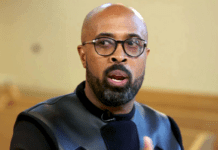Piper’s Claim #2: “Christians communicate a falsehood when we act as if policies and laws are more precious than being a certain kind of person.”
Piper wrote, “Therefore, Christians communicate a falsehood to unbelievers (who are also baffled!) when we act as if policies and laws that protect life and freedom are more precious than being a certain kind of person. The church is paying dearly, and will continue to pay, for our communicating this falsehood year after year.”
Grudem agrees with Piper’s words that character is more important in a person’s life than his or her policies or laws. However, because both candidates have character flaws, the differences in policies and laws “have primary importance.”
Piper’s Claim #3:“The horrible sin of pride leads people to other sins, including defending abortion, and therefore voting for a clearly boastful candidate might also be indirectly supporting abortion.”
Piper wrote, “Where does the wickedness of defending child-killing come from? It comes from hearts of self-absorbed arrogance and boasting (James 4:1–2). It comes from hearts that are insubordinate to God. In other words, it comes from the very character that so many Christian leaders are treating as comparatively innocuous, because they think Roe and SCOTUS and Planned Parenthood are more pivotal, more decisive, battlegrounds.”
Grudem believes Piper misinterprets James 4:1-2, which he cited in support of his statement that pride leads to other sins. The passage reads:
What causes fights and quarrels among you? Don’t they come from your desires that battle within you? You desire but do not have, so you kill. You covet but you cannot get what you want, so you quarrel and fight. You do not have because you do not ask God.
Gudem says this passage speaks about coveting, not boasting or arrogance, leading to murder. Grudem goes on, “There is no doubt a measure of pride involved in all sins, but I do not think there is a direct causal relationship between a president who exhibits pride and the prevalence of abortion in a society.”
Piper’s Claim #4: “Voting for either candidate would compromise a person’s Christian witness.”
Piper wrote, “When I consider the remote possibility that I might do any good by endorsing the devastation already evident in the two choices before me, I am loath to undermine my calling (and the church’s mission) to stand for Christ-exalting faith and hope and love.”
Grudem believes that if evangelicals follow Piper’s example, “it will guarantee a Biden victory.” Grudem makes this argument by explaining how evangelical Christians make up a significant part of Trump’s voting bloc and that if even one or two percent of this bloc were to vote third party or sit the election out, it would mean a Biden victory.
Grudem also points out what he believes will happen if Trump is elected for a second term: More originalist judges (those “who will interpret the laws and not make new laws on their own,” as Grudem puts it) will be appointed; more restrictions on abortion will be put in place; greater protection for religious freedom; lower taxes; a growing economy; more agreements between Israel and its neighbors; and greater support of the police that will lead to lower crime rates.
If Biden were to win, however, Grudem sees a dire outcome. Namely, the appointment of judges who “take the law in their own hands and even consider themselves to be above the original meaning of the Constitution”; looser abortion laws that could include the killing of babies after they are born; a crippling economy; “a Jimmy Carter-like foreign policy of appeasement”; abandoning of Israel; greater freedom for trans-sexual people, including their use of the bathrooms and locker rooms of their choice; “the proliferation of violence and intimidation to nullify freedom of speech (in practice) for those who disagree with the liberal political agenda”; and a “complete federal takeover of our healthcare system.”
Grudem concludes that voting for Trump “seems to me to be the most loving, most faithful choice for a Christian.”
While a handful of influential evangelical Christian leaders like Al Mohler, Wayne Grudem, Franklin Graham, and John MacArthur have indicated their voting choice this election, others, like Piper, believe such leaders shouldn’t be so quick to endorse a candidate.











